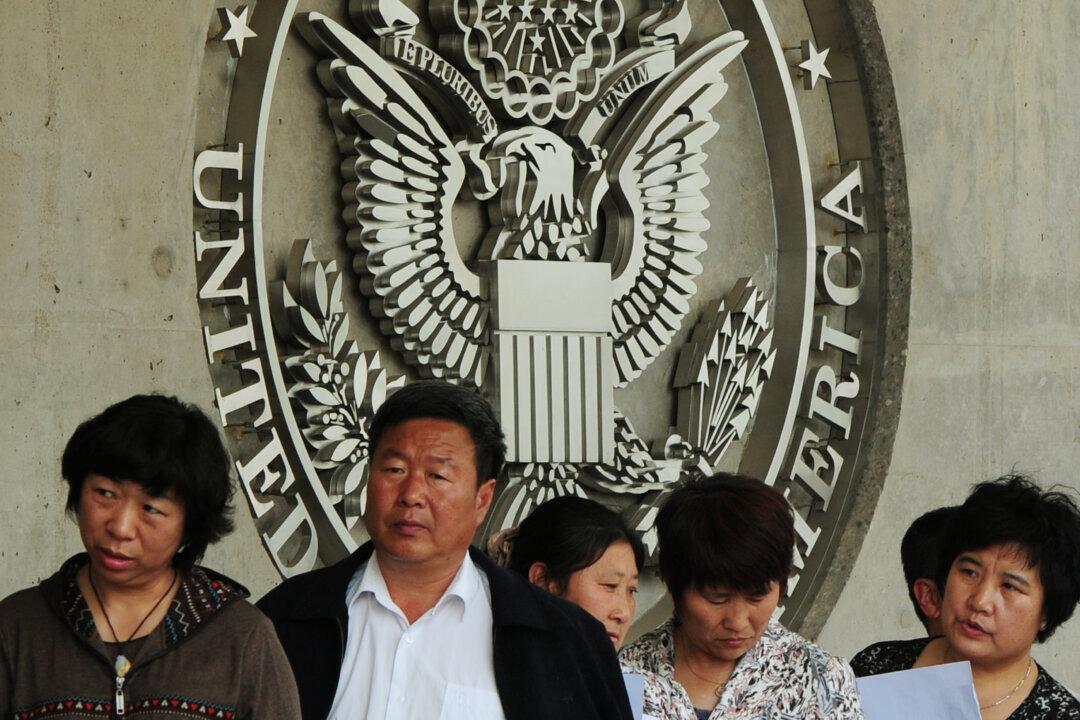As the Sino–U.S. trade war continues to escalate, Chinese netizens have found a platform to express their thoughts on the latest developments in the dispute: the social-media account belonging to the U.S. Embassy in China.
The U.S. Embassy’s account on Sina Weibo—a social media similar to Twitter—has long been considered a rare safe haven for free speech in China, allowing netizens to speak their mind.
Because comments on an account belonging to an American entity are less likely to be censored by China’s internet monitors, Chinese users have taken to the U.S. Embassy’s Weibo comments section to air grievances—such as when Chinese drug companies were exposed for producing and circulating faulty vaccines for children in July, or to simply express their opinion on current events. While content criticizing the Chinese regime is often deleted, the U.S. Embassy’s comments section often allows netizen admonishments.
After U.S. President Donald Trump announced that his administration would go through with planned tariffs on an additional $200 billion of Chinese goods on Sept. 17, netizens expressed their support for the United States. The U.S. Embassy’s Weibo account posted a copy of Trump’s statement about the additional tariffs on the same day (Sept. 18 Beijing time), which attracted scores of netizens to encourage Trump.
“Go America the beautiful. You have kept your word and done as promised,” one wrote.
“Brother Trump, do this well. I’m rooting for you,” another wrote.
“Thanks to America for doing in the sickle and hammer,” read another post, referring to the symbol for the Communist Party.
Others pleaded with the United States to help them with China’s economic woes. “Can you help us lower property prices?” one asked.
Why are so many Chinese supportive of the opposing party in the Sino–U.S. trade war?
Many netizens hope that U.S. pressure can prompt the Chinese regime to finally make true economic reforms.
“Only external pressure will allow them to reform. Only when they feel the point of destruction will they be able to change,” one netizen posted.
A similar conclusion was reached by Tsinghua University economist Wei Jie, who recently penned an essay analyzing what strategies China has left in the trade war.
Wei wrote that to counter the impact of U.S. tariffs, China needs to open up its markets, including lowering tariffs on foreign goods; opening up the services market, where China actually has a trade deficit with the United States; and loosening restrictions for foreign investment.
Indeed, the effects of the trade war are beginning to damage an already slowing Chinese economy.
With about a 20 percent loss so far in 2018, Shanghai’s stock market has joined the crisis-hit trio of Turkey, Argentina, and Venezuela, to become one of the world’s four worst performers.
Other economic indicators also pointed to a slowdown: fixed-asset investment growth slowed to 5.3 percent from January to August, the weakest reading since at least 1995 when official records began.
Growth in infrastructure spending, a powerful economic driver, also fell, to 4.2 percent in the first eight months of this year.
As of Sept. 19 morning (EST), the U.S. Embassy’s Weibo account no longer displayed any comments. It’s unclear whether the removal was due to Chinese censors or the embassy turning off the comments section.Reuters contributed to this report.





